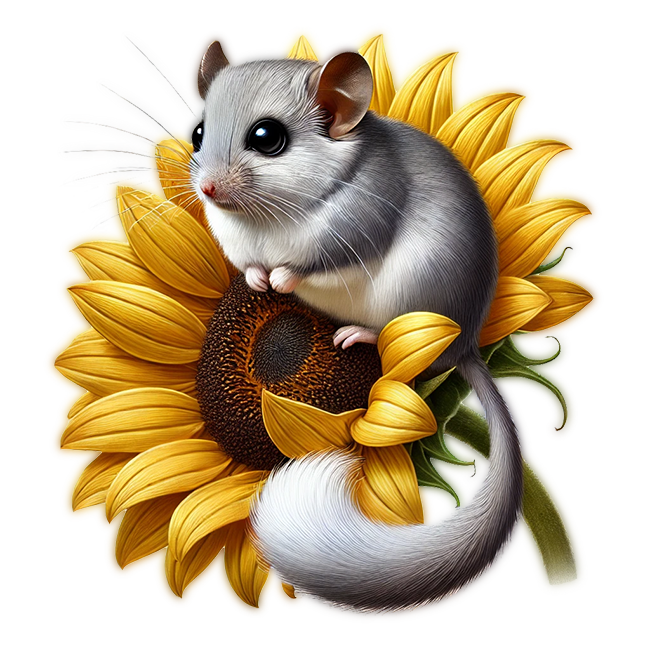Origins & Species Classification
African Pygmy Dormice (Graphiurus murinus) belong to the Gliridae family and are native to Sub-Saharan Africa. They inhabit woodlands, savannahs, rocky terrains, and other varied environments at altitudes between 1,000m and 4,000m. In the wild, they are considered of “least concern” by conservationists, reflecting stable wild populations. As pets, they’re lovingly referred to as “microsquirrels” due to their miniature, bushy-tailed appearance.
With an average adult weight of around 25 grams, African Pygmy Dormice have large nocturnal eyes and soft, golden to grey-brown fur. Their bushy tail and agile climbing skills make them a delight for those who appreciate exotic rodents.
History in the U.S. Pet Trade
Although African Pygmy Dormice are “exotic rodents,” the ones currently available in the United States are captive-bred and have been raised here for many years—especially in Illinois. Their popularity grew among hobbyists who admired their curious and sociable nature.
In the early 2000s, a federal ban briefly restricted the movement of several African rodent species after an unrelated incident involving a Gambian pouched rat. However, domestically bred African Pygmy Dormice were never implicated in that situation. Over time, U.S. authorities recognized that legitimate American breeders posed no health risks, leading to the ban being lifted for these responsibly raised dormice.
Today, small-scale breeders in states like Illinois continue to produce healthy, socialized African Pygmy Dormice—ensuring that new owners can enjoy these charming creatures without relying on wild importation.
Why African Pygmy Dormice?
These tiny, nocturnal pets have a special appeal to rodent enthusiasts who want something more unique than hamsters or gerbils. They thrive with proper care, a varied diet, and a warm, secure enclosure. While they may be shy and fast-moving, many dormice adapt well to gentle, patient handling—especially if socialized from a young age.
In the following sections of our site, you’ll discover their behaviors and social dynamics, plus detailed care requirements, including ideal enclosures, diets, and ways to keep them healthy. Rest assured, with the right knowledge and preparation, African Pygmy Dormice can be delightful companion pets.

